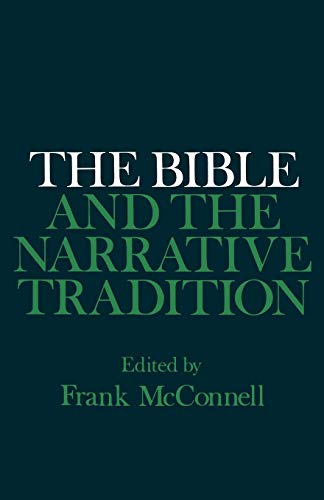Arius: Heresy and Tradition
Written by Rowan Williams Reviewed By Richard BauckhamThis is an important, though also a difficult book. Students not already fairly familiar with at least textbook accounts of the’ development of trinitarian theology up to and including the fourth century are likely to be baffled by much of it. More advanced students will certainly not find it an easy read, but they will recognize a major contribution to the understanding of a figure who has been almost as controversial in recent patristic scholarship as he was in the church of his own time. Reconstructing what Arius really meant to teach and why is a formidable task, both because little of his own work survives except in quotations selected for polemical purposes by his opponents, and also because there is no certainty about what theological and philosophical traditions formed his thought. Yet he played a pivotal role in the formation of the classical Christian doctrine of God, so that any serious attempt to appreciate it must also try to understand Arius. We must, as Williams does, attempt to go behind the categories imposed on Arius by his opponents and try to reconstruct his thinking in its own terms.
In doing so, Williams draws together many of the more solid results of the recent spate of scholarly interest in Arius, but also makes his own original contributions. In so debatable a field, the result is unlikely to be received as entirely definitive, but it will certainly remain a large step forward in Arius research. Its demonstration that Arius’ central concern was with the doctrine of God and his relation to the world is unlikely to be easily refuted. The alternative proposal—made by R. Gregg and D. Groh in Early Arianism (1981) and in part responsible for stimulating recent interest in Arius—that Arius’ central concern was soteriological now looks very implausible. Readers of Themelios will also be interested to find that Williams’ attempt to rescue Arius from the polemical distortion of his views by Athanasius and to present him as a serious and genuinely Christian thinker does not prevent him from recognizing, in a theological postscript, that Athanasius was importantly right.
The book is in three sections on history, theology and philosophy. Part I works expertly through the debated obscurities of dates and documents, providing, as accurately as possible, the meagre biographical framework for the theological issues. It also contains a suggestive sketch of the relation of Arius’ career to changing forms of authority and power in the Constantinian church. Arius emerges as a school-theologian, an anachronism in a church acquiring a new sense of institutional definition, in which theological controversies became a matter of episcopal and imperial politics.
In Part II Williams, correctly I am sure, places Arius firmly within the Alexandrian tradition of theology—in the sense that he was both indebted to it and engaged in a radical critique of the way it had developed in the circle of his bishop Alexander. His concerns were very much those of the problematic of the doctrine of God and God’s relation to the world as it had existed in Alexandrian theology since Origen (and, in some sense, even since Philo). Even his most radical departures from previous Alexandrian understanding of the Logos Williams shows to have important continuity with earlier criticism and rejection of Origen’s cosmology and Christology. As for Arius’ famous claim to be a ‘Lucianist’ Williams convincingly denies that it is likely to indicate any real theological influence on Arius by Lucian of Antioch, while the ghost of Arius the ‘adoptionist’, following in the footsteps of Paul of Samosata, is, one hopes, finally laid.
I find Williams’ detailed account of Arius’ relation to earlier theology almost entirely convincing. But in describing Arius’ theology as a synthesis of points which had been made before but not brought together in quite this way, he perhaps risks underplaying the novelty of Arius’ achievement, which was to break completely with the hitherto all-pervasive notion of hierarchical divinity. Whereas for all Arius’ predecessors the Son was, in however subordinate or ambiguous a sense, divine, for Arius he was unambiguously created rather than divine. Out of an old familiar hat Arius pulled a new rabbit. (Had he not done so, there would not have emerged—at least not at that time—that other new rabbit: Nicene orthodoxy.) As Williams several times puts it, Arius was both conservative and radical—conservative in his theological concerns, radical in pursuing consistently one of those concerns (for the freedom and transcendence of God) in such a way as to challenge others.
Part III is more speculative, but makes an interesting case for Arius’ indebtedness to recent developments in Platonic philosophy which had not yet affected Christian theology in general. Not that Arius was primarily a philosopher: he was primarily an exegete and theologian. But like all Alexandrian theologians he adopted current philosophical concepts to elucidate his theology. His fundamental concern for the unconditional freedom of God he drew not from philosophy, but from the theological tradition, but to support it he adopted, Williams suggests, elements of the increasing apophaticism of the Neoplatonic philosophers.
Arius cannot be condemned for deviation from an orthodoxy which only emerged from the controversy over his views. But with hindsight we can call his theological enterprise a failure. If we ask whether this book enables us to identify how Arius failed (and therefore, how Nicene theology proved more adequate), then it seems to me, at the risk of oversimplifying a complex book, that the nub of the matter is this: Arius attempted to secure God’s freedom in relation to the world, but did so in a way which denied his freedom really to relate to the world.
Richard Bauckham
Professor of New Testament Studies at the University of St. Andrews







